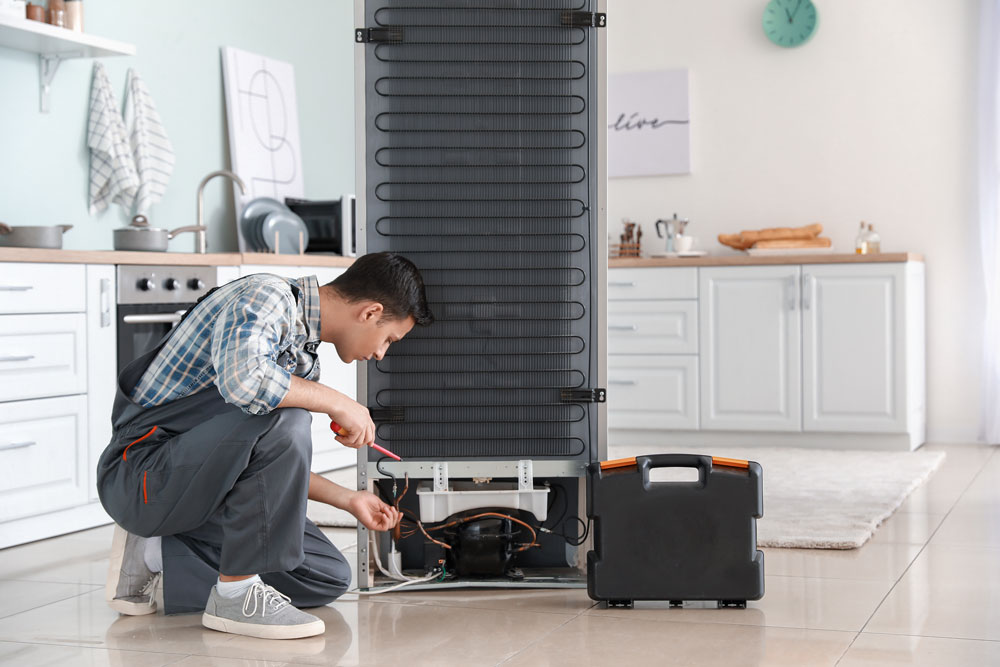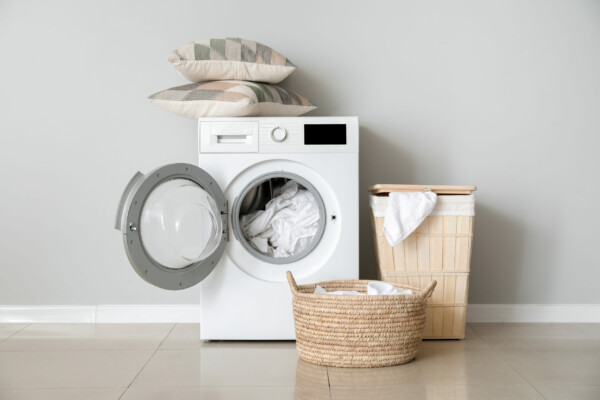The Role of the Refrigerator Compressor
The compressor is essentially the heart of your refrigerator. It’s responsible for circulating refrigerant, which absorbs and releases heat, cooling the fridge’s inside. Without a functioning compressor, your fridge won’t cool.
Significance of the Compressor
The compressor’s health directly impacts the efficiency and longevity of your refrigerator. A malfunctioning compressor can lead to uneven cooling, increased energy consumption, and, in worst cases, complete fridge breakdown.
Common Causes of Clicking Noises in Refrigerators and Freezers
Faulty Compressor
A compressor that’s nearing its end might struggle to start, leading to repeated clicking sounds. This is often a sign that the compressor is overheating or failing.
Start Relay Issues
The start relay acts as a bridge between the compressor and the refrigerator’s power supply. If it’s malfunctioning, the compressor might not receive the necessary power, leading to clicking noises.
Motor Strain
Just like any machine, if the motor of your refrigerator is overloaded or strained, it can make unusual noises. This strain can be due to various reasons, including a power surge or a faulty component.
Refrigerant Disruptions
The flow of refrigerant is crucial for the cooling process. Any disruption, be it a leak or a blockage, can cause the compressor to make clicking sounds as it struggles to maintain the cooling cycle.
Identifying the Source and Nature of the Clicking Noise
Compressor vs. Other Noises
While the compressor is a common culprit, other components like the start relay or even the defrost timer can also cause clicking noises. It’s essential to identify the source to address the issue effectively.
Frequency and Pattern
A continuous series of rapid clicks might indicate a faulty start relay, while sporadic clicks could be due to the compressor trying and failing to kick in.
Cooling Inefficiencies
If your fridge’s interior isn’t as cold as it should be, and you hear clicking noises, it’s a clear sign that the compressor or another crucial component is malfunctioning.
Troubleshooting and Addressing the Clicking Noises
- Safety Precautions: Before you start poking around, always unplug the refrigerator. It’s better to be safe than sorry.
- Compressor Check: A simple touch can tell you a lot. If the compressor is hot or has visible damage, it’s likely the noise source.
- Relay Testing: A multimeter can be a handy tool here. Testing the start relay for continuity can tell you if it’s functioning as it should.
- Refrigerant Sounds: If you hear hissing or bubbling noises along with the clicks, it might indicate a refrigerant leak or blockage.
- Expert Opinion: Sometimes, it’s best to leave things to the professionals. If you’re unsure, calling in a refrigerator repair service is always a good idea.
Preventive Measures to Avoid Clicking Noises and Cooling Issues
Regular Maintenance
A well-maintained refrigerator is less likely to give you problems. Regularly cleaning the coils, checking the gaskets, and ensuring the fridge is level can prevent many common issues.
Proper Placement
Your fridge needs to breathe. Ensure it’s not crammed against a wall or in a tight spot. Adequate space around the fridge ensures better airflow and reduces strain on the motor.
Avoid Overloading
A packed fridge can strain the compressor, leading to potential malfunctions and pesky clicking noises.
Final Thoughts
A refrigerator is more than just an appliance; it’s an essential part of our daily lives. Addressing unusual noises promptly ensures your fridge’s longevity and saves you from potential food spoilage and increased bills. Regular maintenance and a keen ear can go a long way in ensuring your refrigerator serves you well for years to come.
Date of page creation: September 13, 2023
Page update date: February 26, 2024




